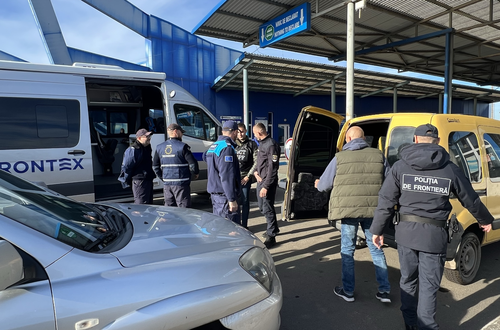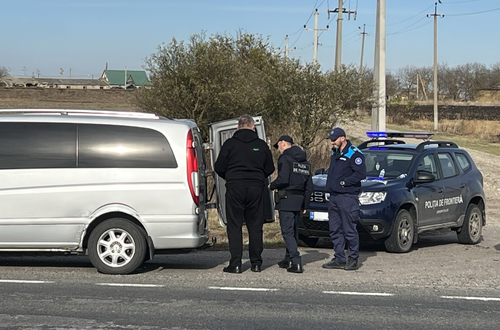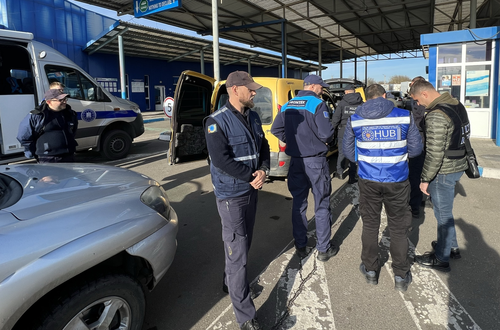Frontex
co-led operation South East Europe, which took place between 13 and 18 November
2023 at land and air borders in the Western Balkans, Southeast and Eastern
Europe. Law enforcement authorities across Europe joined forces to target
firearms trafficking, drug trafficking, migrant smuggling and trafficking in
human beings, and high-risk criminal networks during coordinated Joint Action
Days (JAD) South East Europe.
In
total, more than 22 000 officers from 26 countries across Europe, supported by
Frontex, Europol, Eurojust, INTERPOL and other international organisations,
took part in these large-scale coordinated operational activities. Spain
coordinated the operational activities, while Frontex deployed human and
technical resources under nine ongoing Joint Operations. The operation was
coordinated from an international coordination centre set up in Skopje (North
Macedonia).
The
action week resulted in:
- 2 229 illegal entries detected;
- 566 arrests;
- 114 forged documents identified;
- 310 weapons seized;
- 20 206 pieces of ammunition seized;
- almost a tonne of drugs seized.
Preparing
for the action
During
the intelligence phase before the JAD, Frontex organised a series of dedicated
operational visits and related workshops at the border crossings, where the
checks would take place. Their goal was to raise the level of awareness of
firearms trafficking and other similar trends among Frontex officers and
national authorities. The agency has also sent additional technical equipment to
the borders for the duration of the JAD, for identification of dangerous
chemicals, drugs, explosives and their precursors.
Apart
from sending additional equipment, Frontex organised dedicated workshops on how
to apply those means in operations. Prior to the JAD, Frontex in coordination
with SEESAC UNDP had organised a series of five firearms detection courses in the
Western Balkans. These courses aimed at raising awareness and enhancing skills
of front-line border police, customs and police officers in Western Balkans on
firearms, ammunition and explosives detection, identification and recognition
of weapons, their components and ammunition.
Participants
EU
Member States: Austria, Bulgaria, Croatia, France, Germany, Greece, Hungary, Italy,
Luxembourg, Netherlands, Poland, Portugal, Romania, Slovenia, Spain and Sweden.
Non-EU
countries: Albania, Bosnia and Herzegovina, Kosovo*, Moldova, Montenegro, North
Macedonia, Serbia, Türkiye, Ukraine and United Kingdom.
EU agencies:
Europol, Eurojust and Frontex.
International
and institutional partners: EUBAM, IPA/2019 (Instrument for Pre-accession
Assistance) countering serious and organised crime in the Western Balkans,
INTERPOL, PCC SEE (Police Cooperation Convention for Southeast Europe
Secretariat), SEESAC (South Eastern and Eastern Europe Clearinghouse for the
Control of Small Arms and Light Weapons), SELEC (Southeast European Law
Enforcement Center), UNDP and UNODC.
Together
against organised crime
The operations
toon place under the umbrella of EMPACT, the European Multidisciplinary
Platform Against Criminal Threats. It tackles the most important threats posed
by organised and serious international crime affecting the EU. EMPACT
strengthens intelligence, strategic and operational cooperation between
national authorities, EU institutions and bodies, and international partners.
*
This designation is without prejudice to positions on status and is in line
with UNSCR 1244/1999 and the ICJ Opinion on the Kosovo declaration of
independence.




